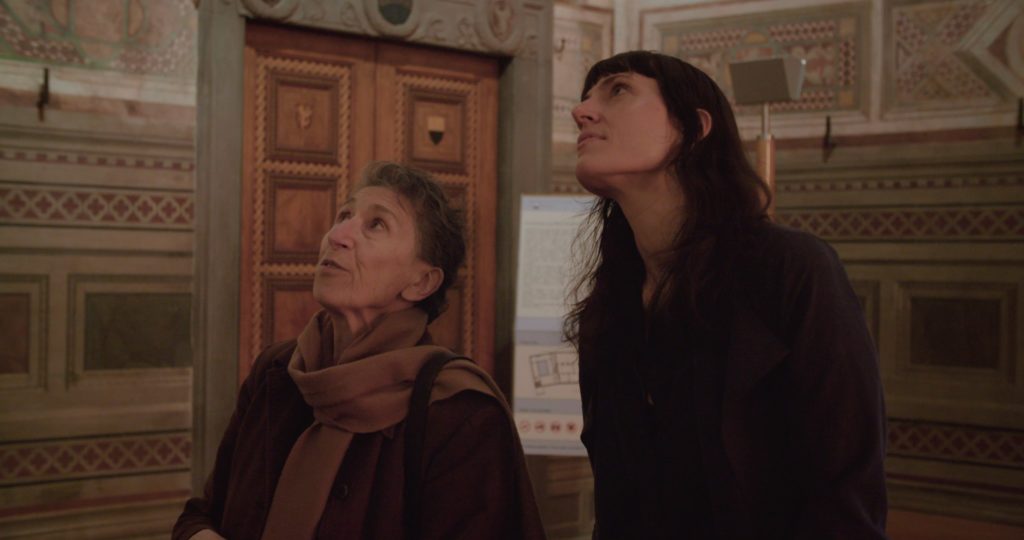Astra Taylor is a filmmaker, writer, and political organizer. Her book “The People’s Platform: Taking Back Power and Culture in the Digital Age” won the American Book Award in 2015. Taylor is a Shuttleworth Foundation Fellow and a former touring member of the band Neutral Milk Hotel. Her previous directorial work includes the documentaries “Examined Life” and “Zizek!” which both screened at TIFF. Her new book, “Democracy May Not Exist, but We’ll Miss It When It’s Gone,” will be out in early 2019.
“What Is Democracy?” will begin screening at the 2018 Toronto International Film Festival on September 11.
W&H: Describe the film for us in your own words.
AT: “What Is Democracy?” is a philosophical investigation into the promise, problems, and perils of self-rule.
W&H: What drew you to this story?
AT: “Democracy” is a word we hear all the time but rarely reflect on. For various reasons, I felt I needed to reflect more deeply on the concept. I had taken a long break from filmmaking and thrown myself into political work focused on economic justice while also writing a book about the politics of digital technology. The idea of democracy was something I kept circling around.
I wrote the proposal for the film in 2014 and began shooting in 2015. What’s shocking is how timely the project now seems. Everyone agrees democracy is in a state of emergency — but when I began, most people I told about it were a bit perplexed by the fact that this was going to be my return to filmmaking because it’s not the most obviously cinematic subject matter.
W&H: What do you want people to think about when they are leaving the theater?
AT: The film is an invitation to think. My hope is that viewers keep the conversation going, asking and debating the titular question — because obviously there is no final answer, or else democracy wouldn’t be able to evolve and adapt, to progress and, in some instances, regress, the way it has.
W&H: What was the biggest challenge in making the film?
AT: There were a lot of challenges. As I mentioned, I began the film well before a certain American president was even a candidate for office and the pervasive sense that we are living through a crisis took hold. The movie has a long temporal horizon, it goes back thousands of years, looking at ancient Athenian democracy and the beginning of political philosophy. It looks at the origins of capitalism in pre-Renaissance Italy.
I take the viewer back to show that many of the problems we are facing –inequality, racism, other forms of exclusion– are not new. At the same time, the problems we are facing are utterly urgent and quite scary. Trying to strike the right balance between the timely and timeless was a bit tough.
W&H: How did you get your film funded? Share some insights into how you got the film made.
AT: I’m very fortunate that the National Film Board (NFB) of Canada signed on and that I was able to work with the Ontario office, particularly my brilliant and tireless producer Lea Marin, who I had collaborated with on my last movie, “Examined Life,” which was an NFB co-production.
This time the NFB came on as the full producer. By the end, it almost seemed like everyone at the institution was part of the project– there was so much enthusiasm, hard work, and technical and moral support provided by the Board’s staff, it was pretty incredible.
“What Is Democracy?” is a very public-spirited project, and it makes perfect sense that it is a publicly-funded film. I don’t think I could have gotten it funded any other way.
W&H: What inspired you to become a filmmaker?
AT: I never wanted to be a filmmaker per se. To be honest, I never understand when people say they want to make movies. I’m always waiting for people to follow up and explain why. What do you want to make movies about? Same goes for writing.
Filmmaking, writing– they are just containers, vessels or forms that need to be filled with meaningful content. I wanted to make films when I realized it was a medium through which I could explore the ideas and issues I cared about. I realized that was possible when I was 20 or 21 and I saw Agnès Varda’s “The Gleaners and I.” Varda gave me a whole new appreciation of documentaries, which I hadn’t realized could be used to explore concepts in such a freewheeling way.
W&H: What’s the best and worst advice you’ve received?
AT: Worst advice: Don’t bother making films. Yes, an older revered male documentary filmmaker said that to me early on, when I was maybe 25, after I had already made a feature that premiered at TIFF.
Best advice is much harder because I’ve been lucky to know a lot of wise people. My executive producer, Anita Lee, gave some fantastic concrete feedback along the way for this project, which I’m really grateful for. She pushed me and gave me permission to make a film truer to my idiosyncrasies and interests, recognizing that adding a bit of the personal would be a way for the bigger political and philosophical themes to resonate.
W&H: What advice do you have for other female directors?
AT: Do bother making films. Make the movies you want to see in the world. Try to experiment with and model new ways of framing and presenting the issues and people you care about, expand the circle of who gets seen and whose voices get heard, and challenge how creative and intellectual authority is manufactured and maintained. Lift other people up along with you.
Remember that sexism — and other forms of discrimination — have a material dimension. It’s about money and power, and toppling toxic structures will involve more than just raising awareness, people will need to fight.







